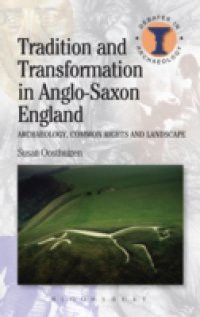Current explanations for the origins of Anglo-Saxon England are generally based on the premise that older forms of social organisation did not survive on any scale into the post-Roman period. Common pastures are thought to have originated during the fifth and sixth centuries, and open fields are believed to have first appeared around the mid-ninth century. The argument presented here suggests a new paradigm. It proposes that some elements of the old Romano-British - perhaps even prehistoric - forms of collective social organisation persisted into post-Roman centuries, and goes on to argue that the impact of dynamic interaction between middle Anglo-Saxon lordly innovation and traditional social relations persisted not only in the medieval landscape but also in English culture more generally.

